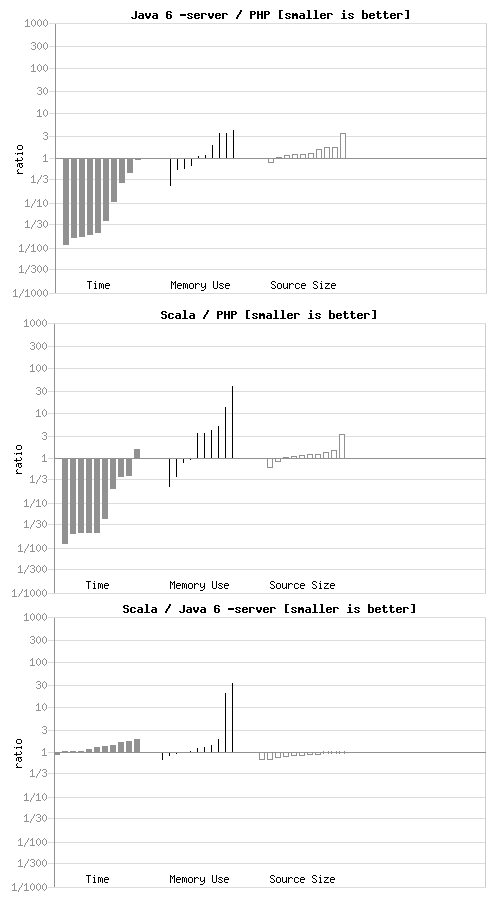Performance - Java vs. PHP vs. Scala
The topic of performance of specific programming languages has provided material for endless debates among developers. Proponents of a certain language often cite examples that show their chosen language in a particularly good light. For example, I have come across the claim that PHP and Ruby are performing just as well as Java. Often these claims are supported by nothing but a firm tone of voice and a stern mien.
Thankfully, we have benchmarks. A playful yet credible approach to performance measurement was taken by this website. It contains an array of typical benchmark algorithms implemented in 35 popular (and not so popular) programming languages all running on various Linux servers. There are many complexities involved in measuring programming languages execution speed. The web development arena adds even more complexities. Much depends not only on how the algorithms are implemented, but also on how the compiler and the server are configured. For example, there are different JVMs, there are script caches, accelerators, server tunings, and what not. The languages I’d like to compare here are Java, Scala, and PHP. You will find comparison graphs for each of these below.
Three charts: 1. Java vs. PHP 2. Scala vs. PHP 3. Scala vs. Java

Three bar groups: 1. Execution time 2. Memory use 3. Size of source code Bar pointing down means: faster performance, lower memory usage, and reduced source size. Basically, these charts confirm what experienced programmers already know. Both, Java and Scala outperform PHP by several magnitudes. To be precise, Java and Scala execute 28 times faster on average.
The performance of Java and Scala is similar, which has to be expected since both languages run on the Java virtual machine. Java gives slightly better performance in some algorithms while its memory requirements are lower. For PHP fans who find these benchmarks disappointing, there is some consolation. PHP appears to be less of a memory hogger, and perhaps more importantly, it performs quite favorably when compared to other dynamic interpreted languages, such as Perl, and Ruby. You can compare more language benchmarks yourself at the following URL: http://shootout.alioth.debian.org/u64q/benchmark.php.
